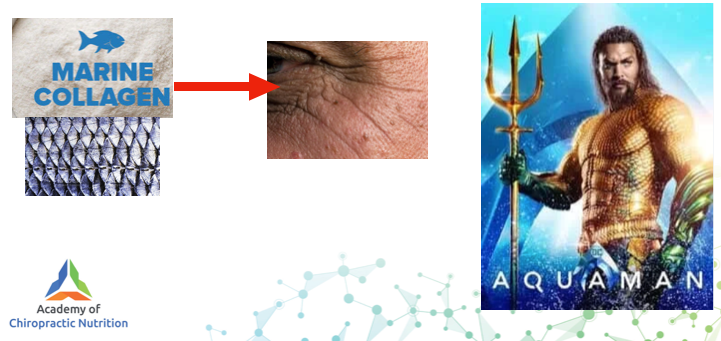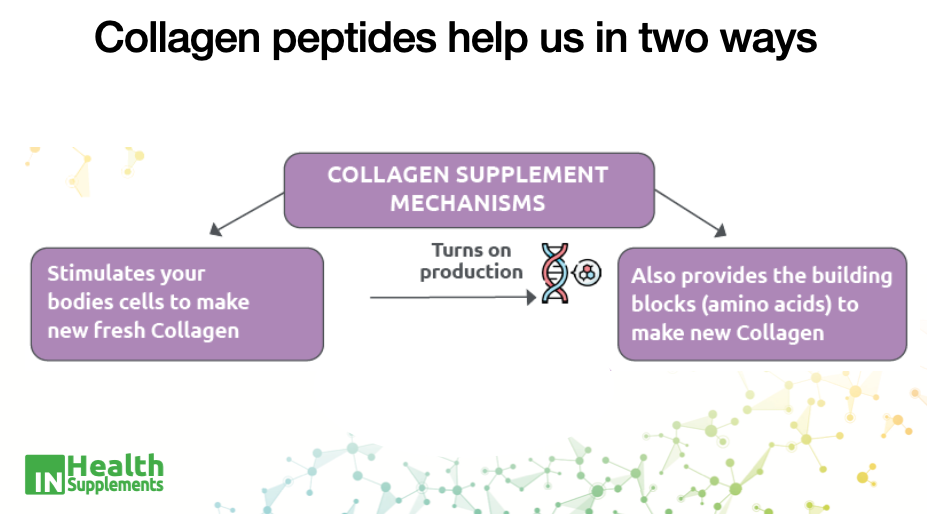Topic: Collagen: What is the truth about supplements?
And why glycine is KEY for healing and health.
Still thinking that marine collagen is directly replacing your collagen?

Is this how it works?

Have you grown chicken wings yet?

Exactly.
Stop living in nutritional la-la land and join us in reality

Please click the link below to join the webinar:
ttps://us02web.zoom.us/j/81931656889
Last week we talked about the epidemic of pregabalin prescriptions, and I suggested that one reason was people are medicating for normal life peaks and troughs, or just emotions from tough/bad times.
This week, we consider if we are over diagnosing mental health issues, and are we actually making things worse, especially for children.
The term “mental health” has become a catch all term. It can mean anything from psychosis down to normal mild emotional distress from everyday events.
There is a danger we are pathologising normal life events and everyday stresses.
I have patients telling me now they “have mental health” and when I dig in a bit to find out why, they tell me things like:
“My father died recently.”
Or “wife/husband left me.”
Or “I’ve lost my job.”
This is not a medical condition, this is life.
They are grieving, stressed and hurt, but they are not ill.
The sheer numbers of people being diagnosed lately suggest something is amiss. 57% of university students claim to suffer from a mental-health issue; over three-quarters of parents with school-age children sought help or advice over their child’s mental health in 2021-22.
We are also creating perverse incentives for people to seek a diagnosis.
In 2022, more than a quarter of 16- and 18-year olds in British schools were given extra time in official exams because of a health condition.
Evidence of a mental-health problem can unlock welfare payments.
Companies may prefer to label stress a disorder rather than deal with the consequences of acknowledging that working conditions are poor.
Britain needs to avoid the mass medicalisation of mild forms of distress.
Funneling people into an overstretched health-care system is having predictable effects.
By over diagnosing mental illness, it is now making it harder for those with actual issues to get help.
And we are also now trying to raise awareness of “mental health”, a noble goal among lockdown, angst-ridden kids, but are we potentially making them worse by telling all of them to look out?
Recent studies have found that several mental-health awareness programs not only failed to help young people, they also made their mental-health problems worse.
From a recent article:

“By focusing teenagers’ attention on mental health issues, these interventions may have unwittingly exacerbated their problems. Lucy Foulkes, an Oxford psychologist, calls this phenomenon “prevalence inflation” – when greater awareness of mental illness leads people to talk of normal life struggles in terms of “symptoms” and “diagnoses.” These sorts of labels begin to dictate how people view themselves, in ways that can become self-fulfilling.
Teenagers, who are still developing their identities, are especially prone to take psychological labels to heart. Instead of “I am nervous about X,” a teenager might say, “I can’t do X because I have anxiety” – a re-framing that research shows undermines resilience by encouraging people to view everyday challenges as insurmountable.
It’s generally a sign of progress when diagnoses that were once whispered in shameful secrecy enter our everyday vocabulary and shed their stigma. But especially online, where therapy “influencers” flood social media feeds with content about trauma, panic attacks and personality disorders”
Here is the really important bit:
“greater awareness of mental health problems risks encouraging self-diagnosis and the pathologizing of commonplace emotions.”
The best thing to aim for is mental resilience.
Life will always keep throwing things at us, so we need to have as much emotional resilience as we can.
For that to happen, kids need to be able to experience the normal competitive world, and have some support from adults and friends, and grow as a human, gain resilience & grit to the outside world.
Does that mean we go back in time and let kids suffer and become adults with issues?
No.
We know more now, and we want to intervene when appropriate, but we must remember the first rule of medicine:
Do no harm
From a recent paper

“In recent years, there have been extensive efforts in secondary schools to prevent, treat and raise awareness of adolescent mental health problems.
(IMPORTANT BIT👇)
For some adolescents, these efforts are essential and will lead to a reduction in clinical symptoms.
(BUT 🤯)
However, it is also vital to assess whether, for others, the current approach might be causing iatrogenic harm. A growing body of quantitative research indicates that some aspects of school-based mental health interventions increase distress or clinical symptoms, relative to control activities, and qualitative work indicates that this may be partly due to the interventions themselves.”
They go on:
“we speculate that one relevant mechanism might be that interventions inadvertently encourage adolescents to ruminate on their negative thoughts and emotions. Indeed, qualitative studies highlight that although some adolescents find school mental health interventions helpful, others say the focus on negative thoughts made them feel more stressed and unhappy.”
“Relatedly, if an adolescent is encouraged to label their negative thoughts and emotions with psychological or psychiatric terminology in school interventions, this might lead to changes in self-concept (e.g. ‘I have anxiety’) and changes in behaviour (e.g. avoidance) that ultimately increase distress and other symptoms in some adolescents.”
There are also unique features of adolescence to consider:
“Adolescents are especially susceptible to peer influence, and school-based mental health interventions commonly occur in groups. It is well established that adolescents can influence each other’s negative moods and can learn problematic behaviour from each other (sometimes known as ‘deviancy training’). It is therefore a reasonable hypothesis that encouraging adolescents to discuss negative thoughts, feelings and behaviours in group settings, as is so common in school-based interventions, could lead to an increase in these experiences in others via peer influence and social learning.”
Children and adults suffering from trauma (in the true sense) now or historically, may benefit from some form of therapy. I am a big fan of EMDR.
You can read about it here:
https://www.academyofchiropracticnutrition.com/why-adverse-childhood-events-matter/

Some people have biochemical imbalances that lead to mental health issues.
Many of those are rooted in genetics (can’t change that) and neuro-inflammation and deficiencies (can definitely change that and they can help bypass genetics).
You can read about that here:
https://www.academyofchiropracticnutrition.com/are-we-headed-for-a-tsunami-of-mental-health-issues/

Some need pharmaceutical intervention, but this is now the first thing that is often offered rather than a last resort.
I think for the day to day life stress that are a low level, I will keep learning from the great stoics. These have stood the test of time and maybe these books are better for kids than mental health awareness programs, and we keep the one to one therapy and support for those kids that really need it.
https://dailystoic.com/stoic-quotes/


